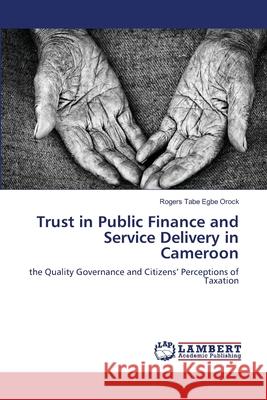Trust in Public Finance and Service Delivery in Cameroon » książka
Trust in Public Finance and Service Delivery in Cameroon
ISBN-13: 9783659178795 / Angielski / Miękka / 2012 / 136 str.
This is a critical account of governance and public finance in Cameroon. It explores the relationship between the quality of governance in Cameroon, known to be very corrupt, on the one hand, and the ways citizens have come to perceive the state's mobilization of public revenue as a kind of social injustice, on the other. The work begins with a critical review of the basis of public domestic revenue mobilization as a contractual and or reciprocal exchange between citizens and the state, best understood within the theory of a democratic developmental state and situates the Cameroonian context of public governance since its democratic transition in 1990 within this theory. The result is a poignant example of how catastrophic governance could mitigate efforts by postcolonial states to shore up public confidence in their public bureaucracies as well as win legitimacy to their cause of domestic resource mobilization.The Cameroonian context of neopatrimonial governance and poor resource allocation that could enhance citizens' welfare leads citizens to question its right to tax them, in a classic statement of no taxation without benefits.
This is a critical account of governance and public finance in Cameroon. It explores the relationship between the quality of governance in Cameroon, known to be very corrupt, on the one hand, and the ways citizens have come to perceive the states mobilization of public revenue as a kind of social injustice, on the other. The work begins with a critical review of the basis of public domestic revenue mobilization as a contractual and or reciprocal exchange between citizens and the state, best understood within the theory of a democratic developmental state and situates the Cameroonian context of public governance since its democratic transition in 1990 within this theory. The result is a poignant example of how catastrophic governance could mitigate efforts by postcolonial states to shore up public confidence in their public bureaucracies as well as win legitimacy to their cause of domestic resource mobilization.The Cameroonian context of neopatrimonial governance and poor resource allocation that could enhance citizens welfare leads citizens to question its right to tax them, in a classic statement of no taxation without benefits.











